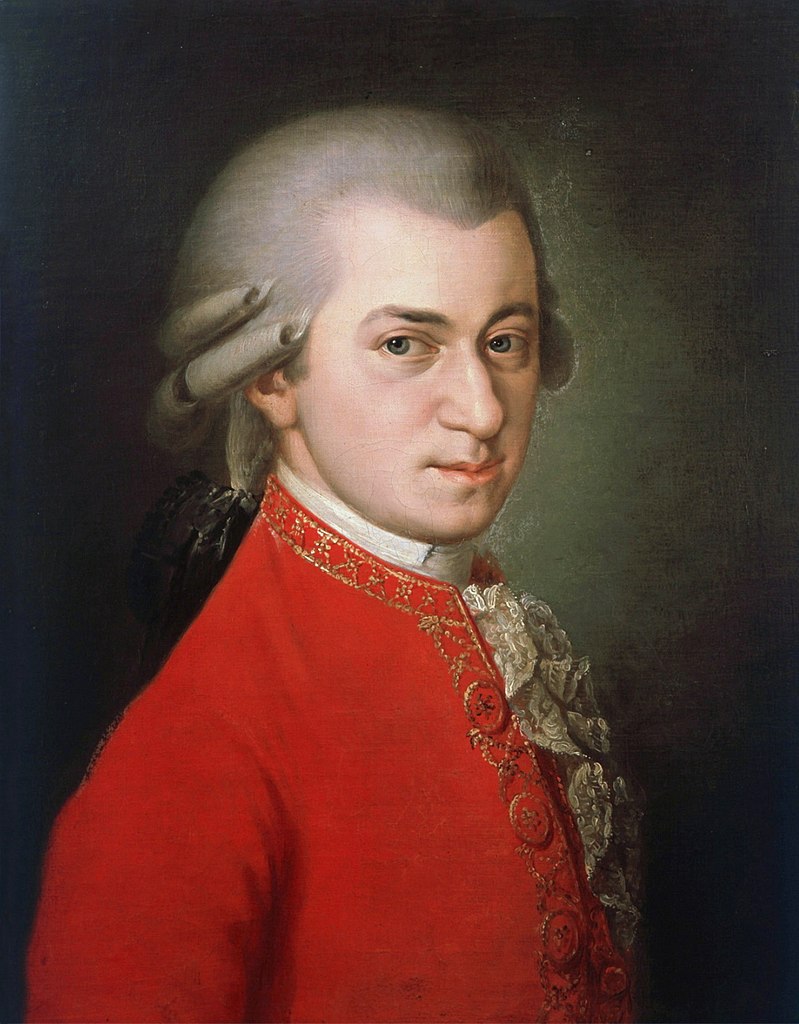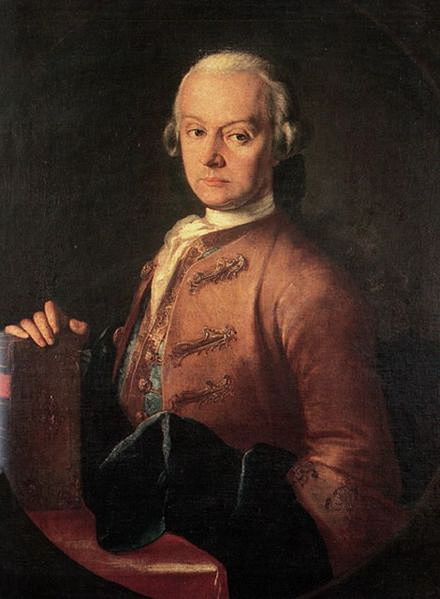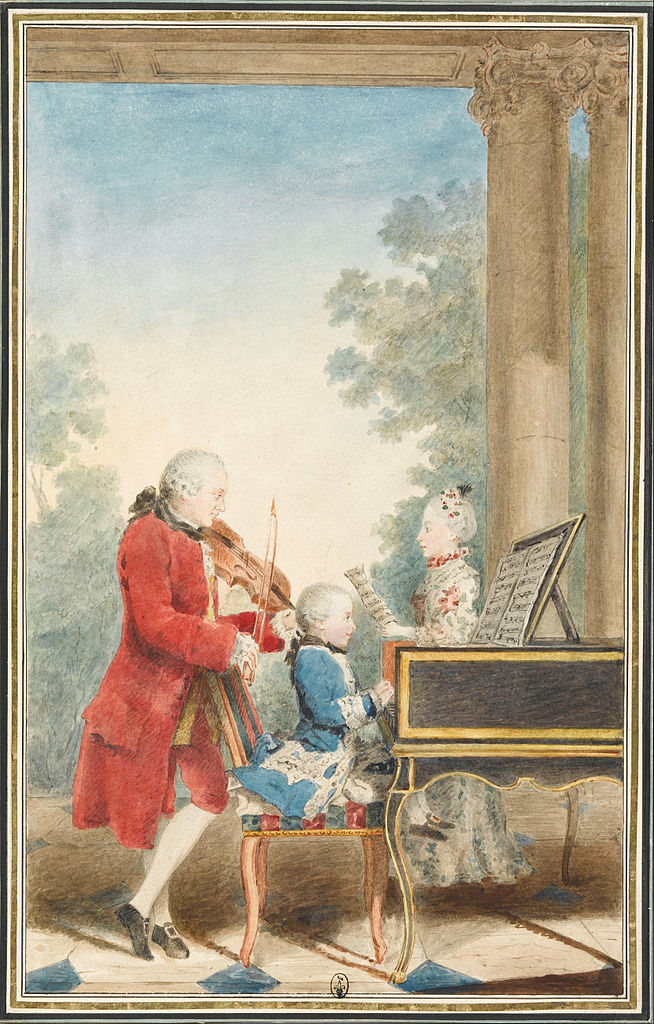

Personal Data
Dates: 1756-1791
Born: Salzburg
Residence: Vienna


Wolfgang Amadeus Mozart
Why does Mozart’s music continue to be so highly valued? For that matter, how did we come to a place where we have studies claiming kids will be smarter if they listen to Mozart?
Mozart undoubtedly possessed an extraordinary gift for playing and composing music. That gift was nourished zealously by his father, Leopold, a renowned pedagogue of the violin who paraded his child prodigy before royalty across Europe and immersed him in the highest musical circles. Being a child prodigy is never easy. Still, Mozart survived the transition into adulthood, by which time he had mastered all of the styles and compositional techniques of his era.
The Prodigy
Leopold Mozart (1719-1787), son of an Augsburg bookbinder, rose to moderate prominence in the music world. Initially he moved to Salzburg to study philosophy and jurisprudence. After taking his bachelor’s degree in 1738, he continued his studies but was expelled the next year for poor attendance and became in 1739 valet and musician to one of the university officials.
In 1743, he was appointed fourth violinist in the musical establishment of the Prince-Archbishop of Salzburg. He served additionally as violin teacher to the choirboys and keyboard instructor. In 1757 he was named composer of the court and gained renown through his publication of a book on music theory.
Leopold married Anna Maria Pertl in 1747. Together they had seven children, two of whom survived children: the youngest, Mozart, who frequently went by the name Amadé, and his older sister Maria Anna (“Nannerl”).
Around 1760, Leopold turned his focus to educating his two children. Realizing the extraordinary abilities of his son, Leopold gave up teaching and poured his energies into his son. His own musical career languished. Professionally, he had an early and middle period, but no late period. He produced no compositions of his own after 1771.
Young Mozart gave his first public appearance in 1761, and Leopold launched the first family tour in 1762 as a performing trio: Leopold (violin), Nannerl (harpsichord), and Wolfgang, who played both violin and harpsichord.
Leopold’s life became subsumed in his son’s. He promoted Wolfgang with missionary zeal: “I owe this act to Almighty God, otherwise I should be the most thankless creature. and if it is ever to be my duty to convince the world of this miracle, it is so now, when people are ridiculing whatever is called miracle and denying all miracles. Therefore they must be convinced.”
From 1763 to 1766, the Mozarts took a grand tour of Europe, traveling to Munich, Vienna, Presburg (Bratislava), Paris, the Hague and London. Leopold’s goal was to visit every major musical center with the hope of receiving monetary rewards from the royal courts. Mozart performed for Louis XV and George III, among other notables.
These journeys exposed Mozart to wide musical experiences. Mozart gained an especially fruitful friendship with Johann Christian Bach (J.S. Bach’s enormously successful son dubbed the “London Bach”). As a result, Mozart synthesized the prevailing influences and mastered numerous styles of writing. As an adult, he excelled in producing music for every medium popular in his day, distinguishing from virtually all other composers.
Leopold’s influence over his son waned, however, notably in Wolfgang’s insistence on marrying Constanze in 1781. Wolfgang left Salzburg rather ungraciously to seek success in the much larger Vienna, but failed to obtain a suitable post and spent the rest of his adult life enjoying certain successes but many more disappointments.
Our study of Mozart includes timelines, master classes, demonstrations of instruments of his time, and additional biographical information, as well as performances of his works: symphonies, concertos, operas, chamber music, and choral works. Begin with Professor Carol’s 1-hour webinar “What’s So Great About Mozart.”
(You must be logged into the Circle of Scholars to view the rest of this page.)
